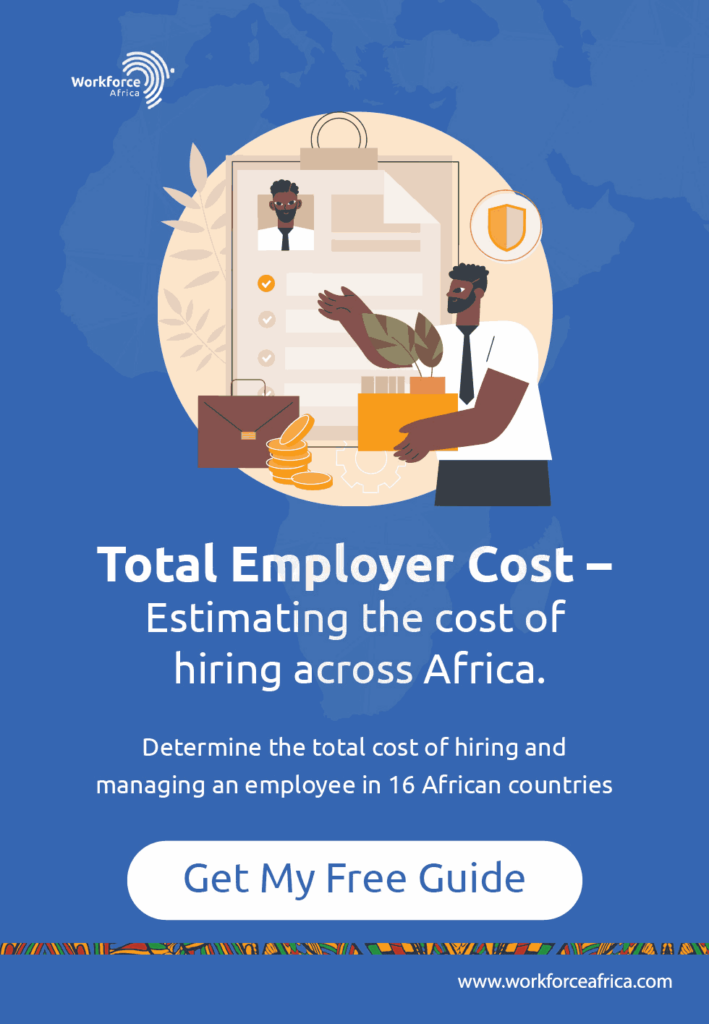

This article delves into the importance for global employers to embrace diverse perspectives, provide equitable opportunities, and cultivate a culture of respect and sense of belonging for their remote talents across Africa to help their business growth.
By outlining strategies for creating an inclusive workplace, we highlight how a supportive environment contributes to overall business growth.
Many businesses embrace workplace diversity but must be made aware of why inclusion is equally important. While diversity is a vital core value, it will only thrive with inclusion.
To foster a culture where remote employees feel valued, respected, and empowered, the organisation must create an environment that allows them to showcase their skills and contribute to its growth.
Therefore, creating an inclusive workplace is crucial. Inclusivity enhances employee satisfaction and retention and drives innovation and business success by leveraging diverse perspectives and ideas.
We will explore why global businesses should foster an inclusive environment and outline specific strategies for creating an inclusive workplace, empowering remote talent across Africa and fueling business growth.
Inclusion creates a workplace culture where diverse individuals feel comfortable and confident being themselves.
It allows them to work in a way that suits them and meets business or service needs.
Remote employees who feel included in the workplace have a better sense of belonging, which can lead to increased output, more creativity, and better decision-making.
When workers feel more linked to one another, team performance improves. As they are pulled in the same direction, the likelihood of success and progress increases.
Creating an inclusive work environment brings numerous benefits to both remote employees and their global employers. Here are five key benefits:
When remote employees feel included and valued, their engagement levels rise significantly.
An inclusive workplace environment brings a sense of belonging and respect, which boosts motivation and commitment.
Employees who feel engaged are typically more productive, experience higher job satisfaction, and demonstrate organisational loyalty.
This heightened engagement can lead to improved performance and reduced turnover rates.
Inclusion helps build a sense of belonging among remote talents by ensuring everyone feels accepted and valued for their unique perspectives and contributions.
Creating a diverse workforce is a top priority for attracting and retaining top talent. When employees feel they belong, they are more likely to participate fully in team activities, share ideas and collaborate effectively.
This is crucial for creating a supportive and cohesive work environment.
Creating an inclusive workforce enhances the overall employee experience by providing a positive, respectful, and supportive environment, which leads to employee satisfaction and well-being.
Inclusive practices such as fair treatment, equal growth opportunities, and recognition of diverse talents across Africa.
This helps to contribute to a more fulfilling and enjoyable work experience for all remote employees.
Diverse and inclusive workplaces are known to enhance innovation.
When talents from various backgrounds and with different perspectives come together, they bring broader ideas and solutions.
This diversity of thoughts will promote creative problem-solving and innovative approaches to business challenges.
Inclusive workplace environments encourage the exchange of ideas and foster an atmosphere where creativity can thrive.
By creating a diverse and inclusive workplace, we can tap into a wider range of perspectives and experiences, leading to better decision-making.
Leaders prioritising inclusivity tend to be more effective. Inclusive leaders are better at understanding and leveraging the strengths of their diverse teams.
They create a diverse and inclusive work environment where everyone feels heard and respected, which can improve team dynamics and performance.
These leaders are often seen as more approachable and trustworthy, which can enhance their ability to inspire and motivate their teams across Africa.
Suggested Post: How to Manage Toxic Employees and Protect Your Team
Creating an inclusive workplace fosters a positive, productive, and innovative work environment. Here are five effective strategies for creating an inclusive workplace:
To build an inclusive workplace, start with your recruitment and hiring practices.
Ensure your job postings are free from biased language and accessible to a diverse audience.Utilise diverse recruitment channels to reach a wider pool of candidates.
Implement structured interview methods and diverse hiring panels to reduce bias and ensure fair evaluations of all candidates, regardless of their backgrounds.
This strategy helps attract a wide range of talented individuals, each bringing unique perspectives and ideas.
Create and implement policies that actively promote inclusivity in the workplace. These should address anti-discrimination, equal opportunity and flexible working arrangements.
Regularly review these policies to align with the evolving needs of your workforce.
Ensure all employees are informed and understand these policies through training and effective communication.This establishes a supportive and diverse work environment.
Global businesses should cultivate a work environment that encourages, and values open communication and feedback.
Establish channels for employees to express their opinions, concerns, and suggestions without fear of retaliation, and regularly gather feedback through surveys, focus groups, and virtual meetings.
Actively listen to employees and implement changes based on their input.
This approach builds trust and demonstrates that the organisation values and respects all voices, regardless of location.
Mentorship programs are an effective way to support diverse African talent and promote inclusion.
Global employers can pair employees with mentors who provide guidance, support, and career development advice.
These mentorship opportunities should be accessible to all employees, regardless of background.
Mentorship can help remote workers navigate the workplace, build professional networks, and advance their careers, fostering an inclusive culture.
Investing in employee development helps create an inclusive workplace. Offer training and development programs that focus on both professional skills and inclusive behaviours.
This provides opportunities for continuous learning, career advancement, recognising efforts and reward contributions from all employees, ensuring that everyone feels valued for their efforts.
This investment enhances individual growth and individual growth but also contributes to a more dynamic and inclusive work environment.
By implementing these strategies, organisations can create a more inclusive, supportive, and innovative workplace that benefits all employees and drives overall success.
Recommended Post: 4 Underrated Policies to Include in Your Employee Handbook
Fostering an inclusive workplace is not only the right thing to do, but it also drives significant business benefits.
By adopting inclusive recruitment and hiring practices, promoting inclusive policies and practices, embracing open communication and feedback, implementing mentorship programs, and investing in employee development, organisations can create a more dynamic, engaged, and innovative work environment.
The most effective strategies for creating an inclusive workplace are constantly evaluated and refined to meet the evolving needs of our diverse workforce.
These strategies ensure all employees feel valued and empowered, leading to higher job satisfaction, better performance, and a more robust, cohesive company culture.
Ultimately, embracing inclusivity is a vital step toward building a resilient, adaptable, and forward-thinking workplace that helps talent across Africa and likewise helps global businesses grow.
By grasping the value proposition of offshoring to Africa and collaborating with one of Africa's leading market entry and offshoring firms, global employers can gain practical strategies for creating an inclusive workplace.
Our commitment to building a diverse and inclusive workforce extends beyond hiring practices, encompassing professional development and a culture of respect. Schedule a consultation with us today to partner with us.